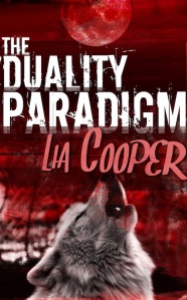I’m sure if you asked a dozen different writer’s their opinion of keeping a writer’s journal you’d get twelve very distinct different replies. For example, in a talk given to the University of Massachusetts (watch it on youtube here), Stephen King warns against keeping a writer’s journal. I, on the other hand, will generally advocate for keeping a journal—especially a hardcopy journal. But what’s my word against Stephen King’s? Not much but I’ll stand by it. In the end whether you decide to keep a journal will probably come down to your own writing style.
Why Wouldn’t You Keep A Writer’s Journal?
 I think people usually start a discussion like this by listing reasons you should do something but I’m going to mix it up. I mentioned Stephen King who compared a writer’s own mind to a sieve—or in my own words, a colander. As a creative individual your brain is always taking in information and spitting back ideas. You overhear a conversation in Starbucks; you have a crazy, exciting dream; you have a challenging or eyeopening conversation with a friend. All of these things may inspire an idea for a story, a character, or a piece of a book.
I think people usually start a discussion like this by listing reasons you should do something but I’m going to mix it up. I mentioned Stephen King who compared a writer’s own mind to a sieve—or in my own words, a colander. As a creative individual your brain is always taking in information and spitting back ideas. You overhear a conversation in Starbucks; you have a crazy, exciting dream; you have a challenging or eyeopening conversation with a friend. All of these things may inspire an idea for a story, a character, or a piece of a book.
Mr King tells his audience that you shouldn’t write these things down. Instead, you should let them rattle around in your brain for awhile and like someone panning for gold, all the detritus will fall out and you’ll be left with only the gems.
It’s a fair point.
Why Would You Keep A Writer’s Journal?
But what if you’re like me and you have a terrible memory?
- Memory is the #1 reason I advocate for keeping a writer’s journal.
I’m a very young writer still working on my freshman books, I’m also unemployed and poor, so I do 95% of my own editing at this point. I have an alpha reader who does minor corrections and a beta reader who gives feedback on content and the typos she sees while she’s reading. But besides that I edit my own work over and over and over. I’m on my third read through and grammar correcting of The Duality Paradigm and I can tell you I come across scenes that I wrote a year or two ago that I have very little to no memory writing.
My writing continually surprises me. I’ll be reading a passage and be sort of blown away by passages that I can’t quite believe I wrote. But I did. And it isn’t just writing I forget, I forget things I say, advice I give, things people tell me, dates, deadlines, locations, peoples names. My brain is a leaky tub—unless it has to do with an actor’s name and IMDB page.
 I do a lot of brainstorming in composition books that I always carry around with me in my messenger bag. Everything goes into these notebooks: outlines, beats, dialogue, entire stories, character descriptions, conversations I’ve overheard, and story ideas. And I cannot tell you how many times I’ve been flipping through a notebook looking for something and discovered the barebones of a story idea I wrote down a year or three ago that I had completely forgotten about. That I never would have recalled if I hadn’t written it down.
I do a lot of brainstorming in composition books that I always carry around with me in my messenger bag. Everything goes into these notebooks: outlines, beats, dialogue, entire stories, character descriptions, conversations I’ve overheard, and story ideas. And I cannot tell you how many times I’ve been flipping through a notebook looking for something and discovered the barebones of a story idea I wrote down a year or three ago that I had completely forgotten about. That I never would have recalled if I hadn’t written it down.
The great thing about being the creator of your own worlds is that nothing is ever set in stones. I found a very early note I’d written outlining the plot for The Convergence Theory, written on a stickie on my Macbook that held very little resemblance to the plot now. Did the process of writing down what was actually a bad idea keep me from developing the story into a better one? Not at all. It did give me a good laugh in hindsight though.
The Lisa Frank Notebook Hunt Of 2013
I have a terrible habit of harassing friends over Facebook IM chat at 1 AM. So about a month ago I had this great—slightly drunken—idea to buy a notebook strictly for story ideas to save my friends from having to listen to me ramble about my latest Hawaii 5-0/Hockey infusion plot bunny. In my rum and eggnog induced state I decided that only the most perfect notebook would suit to hold all of my plot bunnies: a Markie the Unicorn notebook from Lisa Frank.
I’m a child of the 90s/00s and when I was a little girl Lisa Frank was the shit, so I thought, why the hell not go all out? Get something vibrant and beautiful and charming and keep it forever, fill it up with all of my craziest ideas.
You might be surprised how difficult it is to find a Markie notebook. A search through every store in town that carries school supplies turned up nothing and even eBay was a bust. My sister knew about my search though and she’s very eBay savvy and she found the notebook I was looking for sale literally the week before December 25th. I’m pretty psyched to have my Lisa Frank writer’s journal (pictured above).
How do you keep track of all of your writing ideas? Do you journal? Do you keep notes on your computer? Tell me about it in the comments!









You must be logged in to post a comment.